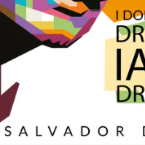อมาตยาธิปไตย
-
Recently Browsing 0 members
- No registered users viewing this page.
-
Topics
-
-
Popular Contributors
-
-
Latest posts...
-
2
Gimme your thumbs down!
The highest ive seen is this fine gentleman. Good luck -
9
Foreigner Tax Requirements
Yup and once army moves in, aside of martial law and the width or interpretation of a certain article, nothing much changes. -
75
Are you bitter about western women?
Yeah, is that why you're here? Massive Mark. -
36
-
75
-
1
Crime Thai Father Arrested for Assaulting Daughter Over Fear of Ghosts
Alcohol needs to stop "being normalized" in society. Way too many people get violent when drinking and can't think straight and act stupid and dangerous.
-
-
Popular in The Pub





.thumb.jpeg.d2d19a66404642fd9ff62d6262fd153e.jpeg)



Recommended Posts
Create an account or sign in to comment
You need to be a member in order to leave a comment
Create an account
Sign up for a new account in our community. It's easy!
Register a new accountSign in
Already have an account? Sign in here.
Sign In Now